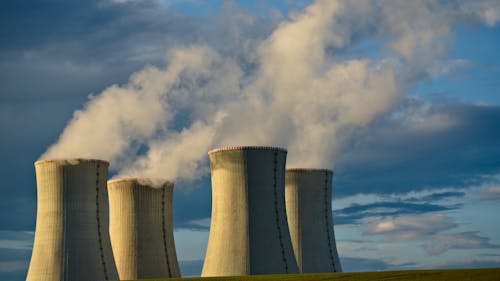School of Engineering receives $4 million to develop sustainable nuclear waste management strategies

The U.S. Department of Energy recently awarded $4 million to the University in order to conduct further research about the sustainable disposal of used nuclear fuel, according to a press release. The grant is 1 of 11 that have been awarded to various universities, laboratories and power plants.
Ashutosh Goel, an associate professor in the Rutgers School of Engineering and awardee of the grant, expressed his excitement to have received it, especially because he only had two weeks to apply.
Though advanced nuclear reactors do not currently exist in the U.S. beyond research and development stages, they will be used in the coming years to divest from non-renewable sources of energy, he said. At that time, they will produce radioactive waste that needs to be managed properly and this is where the grant will come in.
Goel said that while nuclear energy is the future, individuals cannot ignore the waste it produces because it will eventually become someone’s responsibility.
“Eventually, if not today, tomorrow or sometime later in the future, somebody has to deal with it,” Goel said. “We do not want to leave this problem for the next generation.”
The U.S. currently has millions of gallons of nuclear waste stored underground in steel tanks, the largest of which is at the Hanford Site in Washington. He said this specific site houses approximately 55 million gallons of nuclear waste that was generated by reactors during World War II, the generation of the atomic bomb and the Cold War.
That waste will be converted into glass, but he said nothing is currently being done to manage the waste generated by plants used for civilian purposes, which are currently still in their development phases.
Goel said that he and his team, which consists of researchers from four other universities and two laboratories within the Department of Energy, have been working on implementing a solution based on reactor designs that are being considered for use in the U.S.
The team proposes transforming waste into cermet, which is a composite of ceramic and metallic components and is more durable, performs better and is produced more cheaply than glass.
Goel also said that the conversion of waste to glass makes use of electricity-based or gas-based furnaces and releases contaminants, all of which contribute to a greater carbon footprint. As such, he said using cermet will introduce a more sustainable solution for managing waste.
“We are essentially developing this technology, which will lead to a sustainable nuclear energy for the future, contributing to the pursuit of saving our environment,” he said.
While the discovery of cermet is not new, its use in this context is unique, Goel said. Once the technology is developed fully, he said it will be versatile and universally applicable to the waste produced by all types of nuclear reactors.
Goel said that this project will help develop nuclear energy as a sustainable source for the future, which in turn will slow down the effects of climate change by shifting to carbon-free energy production.
“We are always talking about climate change, right?” he said. “And it is a big issue, but the majority of us actually just like to discuss it over a cup of coffee, not do anything much about it. So here's an opportunity where at least as a scientist, as a researcher, we can contribute effectively toward this problem.”



